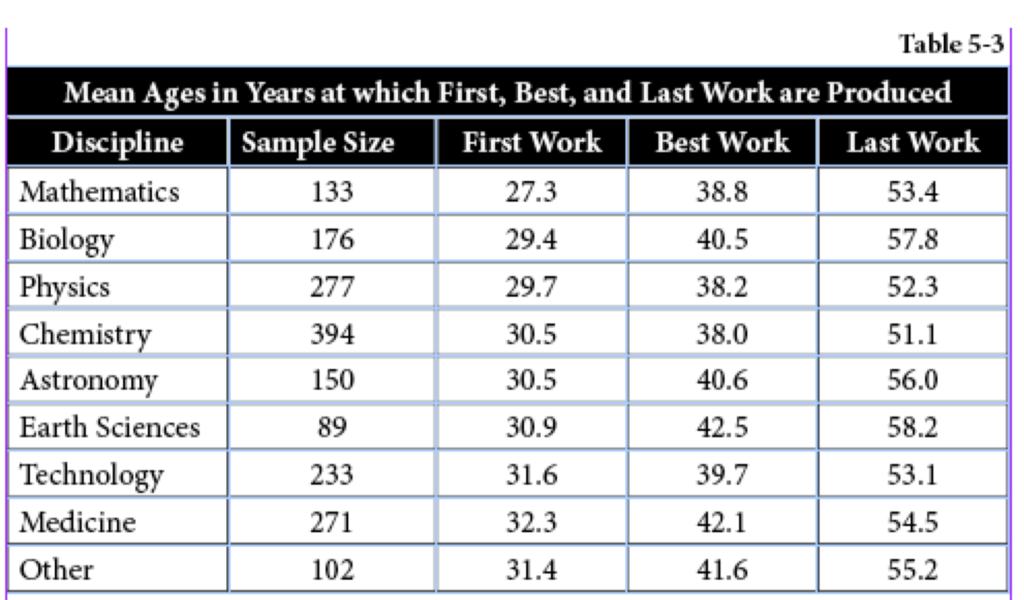During the 20th century, the belief that intelligence peaks early in life and goes into decline thereafter, spawned policies such as mandatory retirement at many universities. The Fields Medal, often referred to as the “Nobel Prize in Mathematics,” was awarded only to mathematicians before the age of 40 because its benefactor, John Charles Fields intended that “while it was in recognition of work already done, it was at the same time intended to be an encouragement for further achievement.” He felt that after age 40 the likelihood of groundbreaking work was unlikely. Yet, we see in the table below that at least 5 recent major breakthroughs in mathematics have been made by people 40 or older.
Using data from Simonton, D. K. 1989. “Age and Creative Productivity: Nonlinear Estimation of an Information-Processing Model.” International Journal of Aging and Human Development. Vol. 29(1) 23-37, we obtain the following extension of brain output from mathematics to the various sciences. The table shows the ages at which the first, best, and last works have been produced.

Research has revealed that there is a great deal of variation among individuals in their ages of peak performance, some achieving eminence before age 30 and others decades later. Furthermore, certain cognitive abilities continue to increase throughout life, while others decline. Reporting on their recent findings, the researchers at MIT’s Department of Brain and Cognitive Sciences observe:[Hartshorne, Joshua, K. and Laura T. Germine. 2015. “When Does Cognitive Functioning Peak?” Psychological Science. Volume: 26 issue: 4, page(s): 440.]
Not only is there no age at which humans are performing at peak on all cognitive tasks, there may not be an age at which humans perform at peak on most cognitive tasks.
In summary, throughout adulthood, various cognitive abilities increase and decline at different rates. Though some elements of fluid intelligence begin to decline in early adulthood, such as short term memory, other components of cognition, such as vocabulary, general knowledge, and comprehension improve. About half of the greatest achievements in science and technology will be made by people over the age of 35, and some by people over age 50. Cognitive skills such as judgement and perspective that draw heavily on crystallized intelligence will improve throughout middle age, though these changes will vary significantly from one individual to the next.
